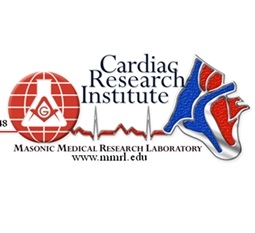
MMRL Scientists Present Ten Lectures and Papers at International Heart Rhythm Society Meeting
Utica, NY, May 18, 2012 AEST (ABN Newswire) - Dr. Charles Antzelevitch, Executive Director and Director of Research of the Cardiac Research Institute (CRI) at Masonic Medical Research Laboratory (MMRL) and 4 members of the MMRL staff attended and presented 10 lectures and papers at the 33rd annual scientific sessions of the international Heart Rhythm Society (HRS). HRS2012, held on May 9-12, 2012 in Boston, MA. The event brought together over 13,000 cardiologists, electrophysiologists and other health care professionals from throughout the world.
Antzelevitch was honored with invitations to present 5 didactic lectures dealing with the cellular mechanisms, clinical diagnosis, prognosis and treatment of life-threatening and other arrhythmia syndromes. One of the sessions was dedicated to Brugada Syndrome, which was first described 20 years ago and one in which the MMRL has played a pioneering role. Another lecture dealt with the J wave syndromes, a term coined by Antzelevitch and co-workers and an area in which MMRL scientists had again played a pivotal role, demonstrating over a decade ago that an early repolarization pattern in the electrocardiogram (ECG) is not always benign as once thought.
Two other lectures dealt with the recent exciting discovery by MMRL investigators that the combination of ranolazine and dronedarone, causes a synergistic depression of sodium channel current in the upper but not lower chambers of the heart (atrial-selective), leading to 90% suppression of the development of atrial fibrillation. The effectiveness of the drug combination in humans with paroxysmal atrial fibrillation is currently being tested in a clinical trial named Harmony. Details of the clinical trial conducted by Gilead Sciences Inc. can be found at:
http://abnnewswire.net/lnk/LJ7AZG62
If successful, this discovery will bring new hope to the 2.7 Americans afflicted with this disease.
Dr. Alexander Burashnikov presented a poster showing that a drug for atrial fibrillation, being promoted as a small conductance calcium-activated potassium channel (SK) inhibitor, actually works to suppress AF via a very different mechanism, namely atrial-selective suppression of sodium channel current.
Dr. Serge Sicouri presented a poster demonstrating the antiarrhythmic effects of a new drug, GS 458967, being developed by Gilead Sciences to prevent sudden cardiac death syndromes via highly-selective late sodium channel inhibition. He also presented another poster showing the effectiveness of drugs to suppress the premature beats that precipitate AF.
Dr. Dan Hu presented a poster introducing SCN10A as a new susceptibility gene for Brugada syndrome. Antzelevitch and his colleagues are proud of the fact that they have discovered 8 of the 12 genes thus far identified as responsible for causing Brugada syndrome, an inherited cardiac arrhythmia syndrome that takes the life of individual as they approach 40 years of age. A poster presented in collaboration with colleagues in Israel and The Netherlands, demonstrated an exciting new way to more definitively diagnose patients with the Long QT Syndrome (LQTS). This method, first conceived by Dr. Sami Viskin and colleagues at the Tel Aviv Medical Center in Israel, consists of a simple test in which the patient is asked to stand up rapidly while being monitored with an ECG. It has proven to be very accurate in diagnosing LQTS.
While at the conference, Dr. Istvan Koncz, a post-doctoral, received his Heart Rhythm Society Postdoctoral Fellowship Grant, which was recently awarded to him under the sponsorship and mentorship of Dr. Antzelevitch. Koncz, a cardiologist from Szeged, Hungary, was honored to receive this award having competed with numerous other applicants. The grant award will provide him $50,000 of support over the next year.
The Cardiac Research Institute at MMRL has gained international renown and wide acclaim in the scientific and medical community as a leading cardiac research center. The hallmark of the institute is its innovative and imaginative approach to fighting heart disease. The MMRL's legacy of scientific breakthroughs has helped to generate new heart medications and develop diagnostic procedures for the management of cardiac arrhythmias, and has aided in the advancement of life-saving technologies. The MMRL is also one of the top genetic screening centers in the world dedicated to helping families afflicted with sudden death syndromes.
Please visit www.mmrl.edu for more information or to arrange a tour or presentation.
Contact
Ronald P. Kamp
Director of Development & Communications
Cardiac Research Institute
Masonic Medical Research Laboratory
TEL: +1-315-735-2217, ext 127
www.mmrl.edu
| ||
|



